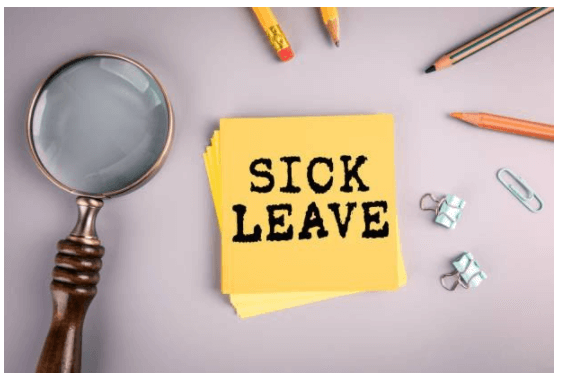Whether you work in a physical office or remotely, you can’t avoid getting sick. Regardless of a healthy lifestyle and doing everything right, it just happens sometimes. Thankfully, telemedicine (along with drinking plenty of fluids, diet, and exercise) can be a superb method of treating some medical issues and helping you get back on your feet in no time. But what if your employer requires a doctor’s note? Getting one can be easy if you’re using a virtual doctor to seek care. A doctor won’t simply give you one just because you ask; you must be treated for something to be eligible for a doctor’s note. These notes are also considered legal documents and should not be forged or faked. Here are a few reasons you might find yourself in need of a doctor’s note and how to get one should you require it.
To Return To Work
Some employers won’t let employees return to their duties if they’ve been sick for a while without a doctor’s release. It varies by state and employer, but there are a few reasons an employer might require a doctor’s note. Usually, it’s if you’re going to be absent for three or more days. The exact medical reason isn’t required and the doctor won’t write it on the note unless you specifically request them to do so. Employers can require a doctor’s note as long as the policy is applied equally across the entire team (i.e. all employees). Employers cannot require notes for every individual absence from one employee but let others off the hook. It has to be equal across the board.
To Get Additional Time Off For Recovery
Recovering from an illness or injury takes time, treatment, and resilience. Without these elements, you’ll just keep getting into a vicious cycle of staying sick without any reprieve in sight. Different procedures will have varying recovery times. If you break a bone, for instance, it might take an average of 6-8 weeks to heal. Depending on the bone and part of the body where you’re injured, you may not be able to attend school or perform your job duties. If that’s the case, you’ll likely take an extended absence from work or school. For these situations, a doctor’s note is definitely a good idea since you may need to go on sick leave while you recover.
If You Had To Be Hospitalized
No one wants to spend time in the hospital, but under some unfortunate situations, you may find yourself in that very predicament. Extended stays in the hospital are never desirable. Getting a doctor’s note for an extended stay is as simple as asking your doctor for one before or after checking in. Make sure you discuss any leave options with your HR department so you know whether you’ll need a note or not.
If You’re Contagious
If you work with others and physically interact with them, having a contagious illness can be detrimental to not only your own health, but the health of others around you. Preventing the spread of pathogens and viruses is critical to keeping your colleagues safe (especially with Covid-19 still making its rounds). Sometimes you just need to stay home and provide your employer a valid doctor’s note or excuse. You can use a telemedicine provider to do a quick phone consultation with a board-certified doctor. The doctor can diagnose and treat your medical issue, helping you determine if you’re contagious and need to miss work. The note comes as part of the service and should only be requested if it is needed.
Extended Medical Leave

There are times in everyone’s life where they may need to be away from the office or work for a lengthy period. Extended medical leave or a leave of absence isn’t a desirable outcome for most people, but it is sometimes necessary and occasionally unavoidable. Reasons you may go on extended medical leave could be due to a life event like childbirth or serious illness. The Family and Medical Leave Act (FMLA) is a way to receive up to twelve weeks of job protection in the event of a qualifying life situation/event. The birth of a child, adopting a child, dealing with a serious health condition (including one affecting your spouse or children), and caring for a service member all qualify as FMLA reasons. Notes can help provide proof that you qualify without violating your HIPAA rights. The note may contain dates or range of dates you’ll be absent or an approximate time frame for a medical procedure.





